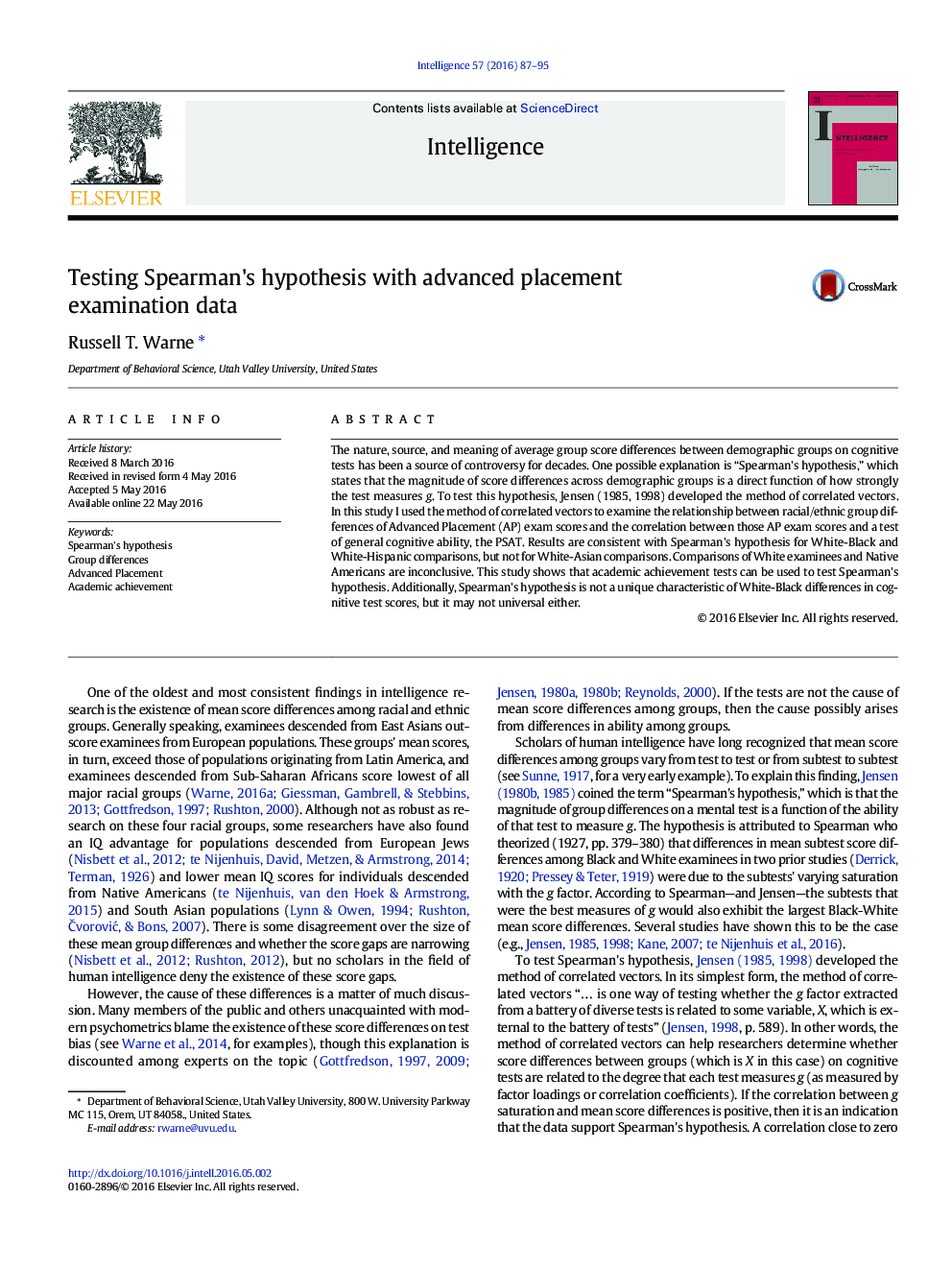| کد مقاله | کد نشریه | سال انتشار | مقاله انگلیسی | نسخه تمام متن |
|---|---|---|---|---|
| 929005 | 1474259 | 2016 | 9 صفحه PDF | دانلود رایگان |
• Spearman's hypothesis was tested to determine if Advanced Placement score gaps were due to g.
• White-Black and White-Hispanic comparisons supported Spearman's hypothesis.
• White-Asian comparisons did not support Spearman's hypothesis.
• Results were inconsistent for White-Native American comparisons.
• Possible methodological advances for studying group differences in intelligence are suggested.
The nature, source, and meaning of average group score differences between demographic groups on cognitive tests has been a source of controversy for decades. One possible explanation is “Spearman's hypothesis,” which states that the magnitude of score differences across demographic groups is a direct function of how strongly the test measures g. To test this hypothesis, Jensen (1985, 1998) developed the method of correlated vectors. In this study I used the method of correlated vectors to examine the relationship between racial/ethnic group differences of Advanced Placement (AP) exam scores and the correlation between those AP exam scores and a test of general cognitive ability, the PSAT. Results are consistent with Spearman's hypothesis for White-Black and White-Hispanic comparisons, but not for White-Asian comparisons. Comparisons of White examinees and Native Americans are inconclusive. This study shows that academic achievement tests can be used to test Spearman's hypothesis. Additionally, Spearman's hypothesis is not a unique characteristic of White-Black differences in cognitive test scores, but it may not universal either.
Journal: Intelligence - Volume 57, July–August 2016, Pages 87–95
